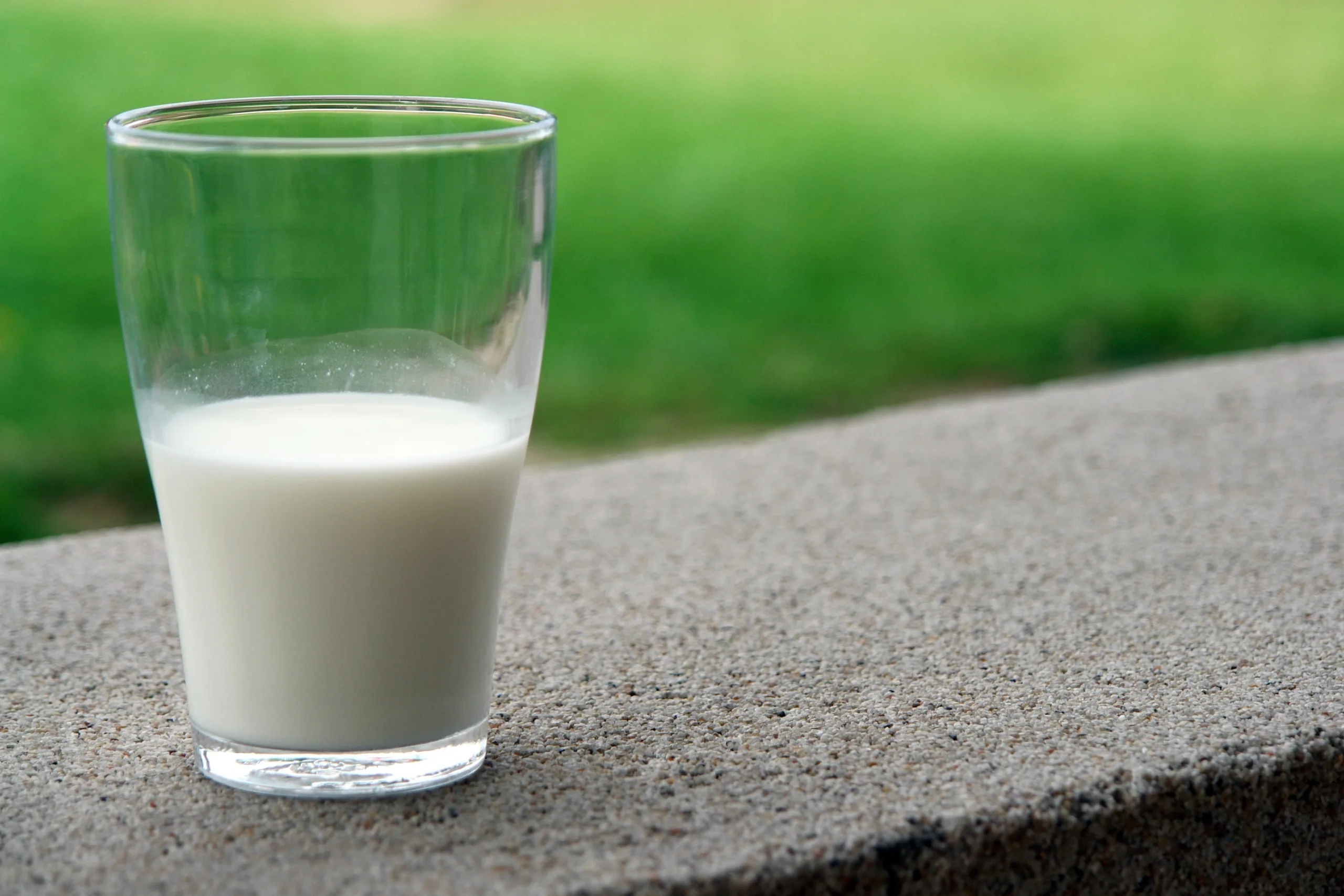Dairy products like milk, yogurt, and cheese have been dietary staples for centuries. However, there are many misconceptions about how dairy impacts health and weight management. Contrary to popular belief, emerging research shows that dairy can be an incredibly helpful part of a balanced diet and weight loss plan.
In this post, we’ll explore the science behind dairy and weight loss, bust myths, and look at the benefits of dairy for weight management in different age groups from children to adults to seniors. Read on to get the real truth about how dairy can be a dynamic tool for losing weight and boosting health!
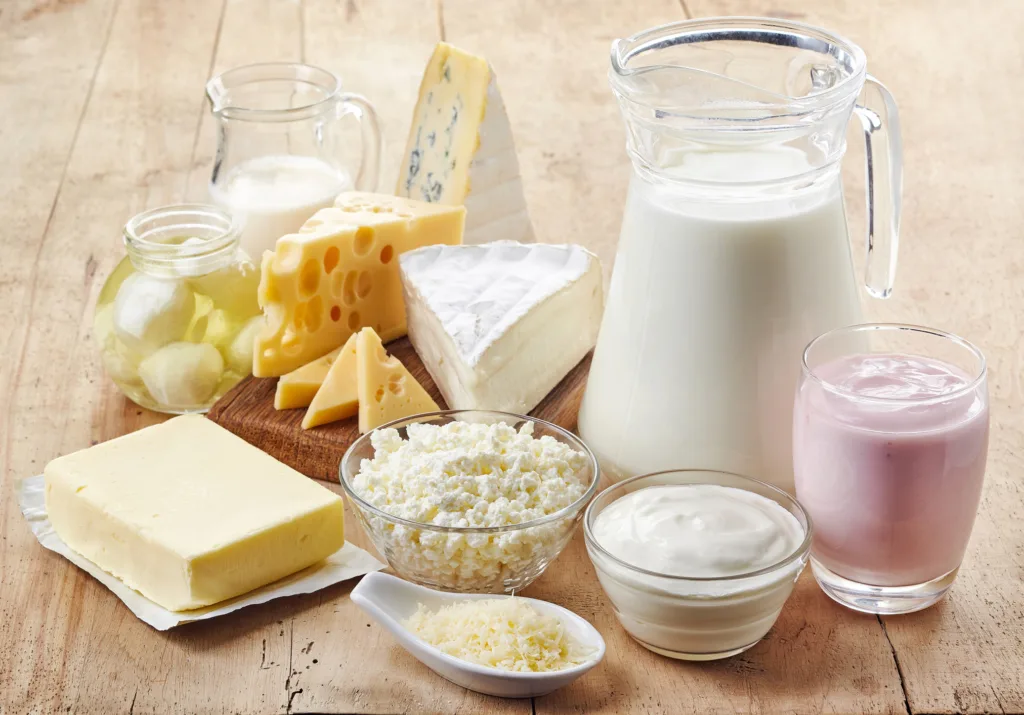
Introduction
Dairy has long been recognized as an important source of calcium and protein in our diets. However, many myths and misconceptions exist around how dairy affects weight loss efforts. Some claim that dairy causes weight gain due to its fat and calorie content. Others insist you must avoid dairy entirely if you want to shed pounds.
The truth is that science tells a different story. When consumed in moderation as part of a balanced diet, dairy products can actually aid weight loss and management. The high-quality protein helps build lean muscle mass. The calcium supports fat metabolism. Components like conjugated linoleic acid (CLA) may encourage fat burning. Dairy helps control appetite and calorie intake as well.
In this post, we’ll explore the real scientific relationship between dairy and weight loss. You’ll learn how dairy provides weight management benefits for all ages, from children to adults to the elderly. We’ll also bust myths and reveal tips for making dairy a dynamic part of your healthy diet and lifestyle.
The Role of Dairy in Weight Loss
Recent research makes a strong case for incorporating dairy foods into a diet aimed at losing excess pounds. Here’s what the science says about how dairy aids weight management:
The protein found in dairy foods like milk, Greek yogurt and cheese helps to build and preserve lean muscle mass. The more muscle you have, the more calories and fat you will burn, even when at rest. Protein also keeps you feeling fuller for longer after eating, reducing subsequent snacking and overeating.
Dairy products contain calcium, vitamin D and conjugated linoleic acid (CLA) – all compounds that are linked with ability to burn fat. Calcium supports the metabolization of fat so it can be used for energy.
Dairy foods are nutrient-dense without being calorie-dense. The vitamins, minerals, protein and other compounds keep you satiated without adding massive amounts of calories to your diet. This nutrient density paired with the protein content makes dairy very filling.
By supporting feelings of fullness and satiety, dairy can help diminish cravings and overeating later in the day. Studies consistently show an inverse relationship between dairy intake and body mass index (BMI).
Dairy as a Source of Protein and Its Impact on Weight Loss
Dairy products like milk, cottage cheese, Greek yogurt and cheese are high in protein. Just one cup of milk has 8 grams of protein. The same amount of non-fat Greek yogurt has a whopping 22 grams!
Higher protein diets are strongly associated with easier weight loss in people of all ages. Protein requires more energy to be digested than carbs or fats, so you burn more calories digesting it. It also suppresses the hunger hormone ghrelin, boosting satiety.
Getting adequate protein from dairy or other whole food sources can help immensely with shedding excess pounds and keeping them off.
The Role of Calcium in Dairy for Fat Metabolism
Dairy products are well known for being excellent sources of calcium, with 1 cup of milk providing about 30% of your Daily Value.
Calcium supports the metabolism of fat by signaling certain enzymes that tell fat cells to break down stored fat. Higher calcium intake is linked to greater fat loss, especially around the stomach area.
Getting sufficient calcium also suppresses the formation of 1,25-dihydroxyvitamin D, a compound that otherwise causes an increase in fat production and storage. The calcium in dairy can help reduce this fat-storing effect.
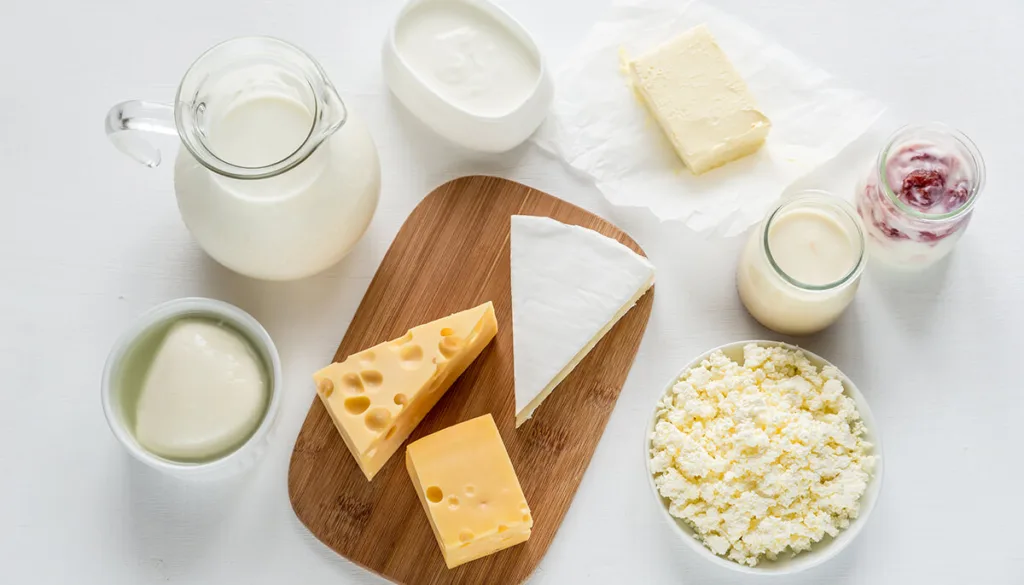
Dairy and Weight Loss in Children and Adolescents
Childhood obesity rates have skyrocketed globally, leading to major health concerns. As kids grow, getting adequate nutrition is vital, and dairy can play an important role. Here’s how dairy aids healthy weight management for children and teens:
Developing children have high calcium needs, as the mineral supports bone growth and development. Kids ages 9-18 require 1300mg of calcium daily. Dairy products are the most calcium-dense foods available, providing the most calcium per calorie. Consuming milk, yogurt and cheese helps kids meet calcium needs for optimal growth.
Protein is essential for growing muscle, bone and tissues. Dairy proteins help satisfy increased protein requirements in childhood and adolescence. Kids able to get sufficient protein from dairy and other whole foods may be less prone to overeating due to excessive hunger.
The nutrients and protein in dairy improve satiety in kids and teens, decreasing tendencies to snack unnecessarily between meals. This can help prevent weight gain and promote weight maintenance.
Recommended Dairy Intake for Kids
To support growth and weight management, the US Department of Agriculture recommends the following daily dairy intake for kids:
- Ages 2-3: 2 cups milk or dairy equivalent
- Ages 4-8: 2.5 cups dairy
- Ages 9-18: 3 cups dairy
One cup of milk or yogurt and 1.5 ounces of natural cheese counts as 1 cup in the Dairy Group. Encourage kids to consume dairy through creating smoothies, oatmeal toppings, cheese snacks and more.
Tips for Incorporating Dairy into Children’s Diets
Here are helpful suggestions for making dairy a delicious, nutritious part of your child’s eating:
- Make fruit parfaits with layers of yogurt, fruit and crunchy granola
- Add milk when making oatmeal, overnight oats, hot cereal or cream of wheat
- Make a smoothie with fruit, milk and spinach or kale for breakfast
- Stuff a whole wheat pita with mozzarella, cucumber and turkey at lunchtime
- Snack on sticks of cheese and whole grain crackers after school
- Sprinkle shredded cheese over tacos, chili, soups or pasta dishes at dinner
- Substitute Greek yogurt for sour cream on baked potatoes
Following these tips can help kids get enough dairy to promote growth, bone strength and healthy weight maintenance. Make dairy fun and tasty for children to reap the benefits.
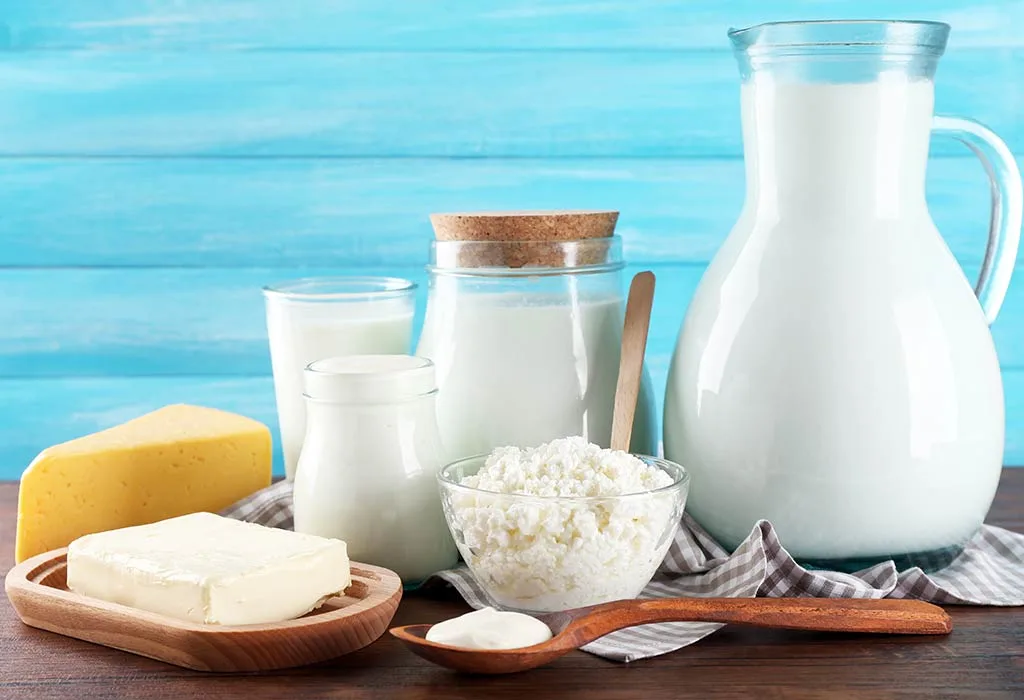
Dairy and Weight Loss in Adults
In adults, dairy continues to provide valuable support for weight management through its protein, nutrient density and ability to control appetite and cravings. However, some do have trouble digesting dairy, so alternatives may be needed.
For most adults, incorporating dairy foods into a balanced, portion-controlled diet can aid in weight loss efforts. Here’s what you need to know:
The whey and casein proteins in dairy keep you feeling full, decreasing tendencies to overeat. A study found dieters lost more fat mass and preserved more muscle mass when consuming higher amounts of calcium and dairy protein.
When incorporating dairy into meals and snacks, be mindful of total calorie content. Choose lower fat versions of milk, yogurt and cheese to keep calories in check. Greek yogurt is particularly high in protein with less sugar than regular yogurt.
Some find dairy causes bloating or other digestive issues. In those cases, lactose-free milk, plant-based milks and lactose-free cheeses may provide options to still get dairy benefits.
Dairy in a Balanced Diet for Adults
To get dairy’s weight management benefits without excess calories, the USDA recommends 3 servings of low-fat or fat-free dairy per day. Serving sizes include:
- 1 cup milk or yogurt
- 1.5 ounces cheese
- 1 cup cottage cheese
- 1 cup soy, almond or other milk alternative
Consume dairy as part of balanced eating with plenty of fruits, vegetables, whole grains, lean proteins and healthy fats. Be mindful of calories from dairy and other sources to create a modest calorie deficit for weight loss.
Dairy Alternatives and Their Impact on Weight Loss
Some may need to use dairy-free milk alternatives due to lactose intolerance, dairy allergy or vegan eating. Here are smart choices:
- Unsweetened soy milk: Provides protein, vitamin D, calcium, selenium to aid weight loss.
- Almond milk: Low in calories to support fat loss, with some calcium and vitamin D.
- Coconut milk: Very low in protein so not the most filling option. Choose “lite” versions and watch calories.
- Oat milk: Contains some protein, fiber, vitamins and minerals while being low in calories.
When choosing plant-based dairy alternatives, opt for unsweetened varieties without added vegetable oils to support a healthy weight loss diet.
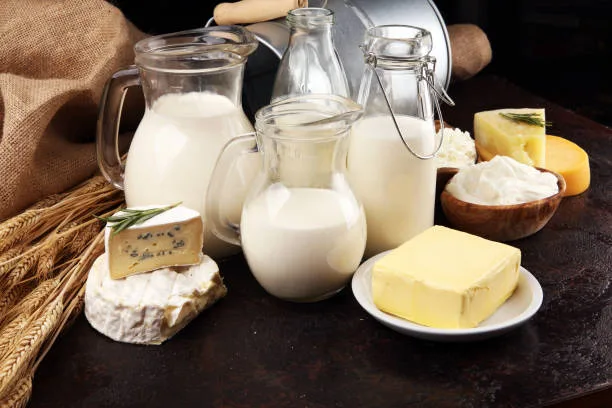
Dairy and Weight Loss in the Elderly
Maintaining a healthy weight gets increasingly important as we age. Dairy can help seniors avoid unwanted weight gain while providing bone-benefiting calcium. Let’s look at how:
Adequate protein intake is crucial for preserving aging muscle. Whey protein stimulates muscle protein synthesis more than other proteins like soy or casein. Consuming dairy foods assists elderly people in maintaining muscle mass.
The high nutrient density of dairy means seniors can get needed vitamins, minerals, protein and calcium without excessive calorie intake. This supports maintaining a healthy weight.
Higher dairy intake is linked to reduced risk of cardiovascular disease, diabetes and metabolic syndrome – conditions associated with weight gain. The nutrients in dairy may help protect seniors against chronic disease leading to weight gain.
Dairy and Muscle Preservation in the Elderly
People tend to lose muscle mass starting in the 30s, with more rapid loss after age 65. Sufficient protein intake can drastically slow muscle loss in seniors.
Whey protein from dairy is considered the most effective protein source for the elderly to stimulate muscle protein synthesis. Consuming milk, Greek yogurt and other high-quality proteins can help seniors retain strength and independence.
Dietary Considerations for Seniors Incorporating Dairy
As we age, lactose intolerance becomes more common. Here are tips for seniors:
- Choose lactose-free milk and yogurt
- Try aged cheeses like cheddar that are low in lactose
- Take a probiotic supplement to help digest dairy
- Incorporate plant-based milks like soy, almond or oat milk
Seniors should aim for at least 3 servings of dairy or calcium-fortified dairy alternatives daily. Talk to your doctor about appropriate dairy intake for your health status and weight goals.
Conclusion
Current science makes a strong case that dairy can be a dynamic tool for weight management at every stage of life. The high-quality protein helps build muscle and satisfies hunger. The calcium and other nutrients spur fat metabolism. Components like CLA may encourage fat burning. By controlling appetite and cravings, dairy is linked to easier weight maintenance and loss.
Moderate dairy consumption as part of a balanced diet provides benefits for children, teens, adults and seniors alike. Choose low-fat versions of milk, yogurt and cheese to keep calories in check. Those with lactose intolerance can opt for lactose-free and plant-based dairy alternatives to enjoy similar benefits.
Emphasize dairy’s weight loss powers while dispelling myths about bloating and weight gain. Dairy is a delicious and nutritious addition to any healthy diet and lifestyle.
Engagement Section
We hope this post helped explain the science-backed role dairy can play in successful weight management! Subscribe below to our free newsletter and receive regular email updates with our newest info on food, nutrition, health, wellness and weight loss.
Explore the rest of our site for related posts on losing weight in a healthy, sustainable way. Get delicious dairy recipes, meal ideas and tips for achieving your body goals. Here’s to health and happiness!
Thank you for reading this post, don't forget to subscribe to our free newsletter
!
